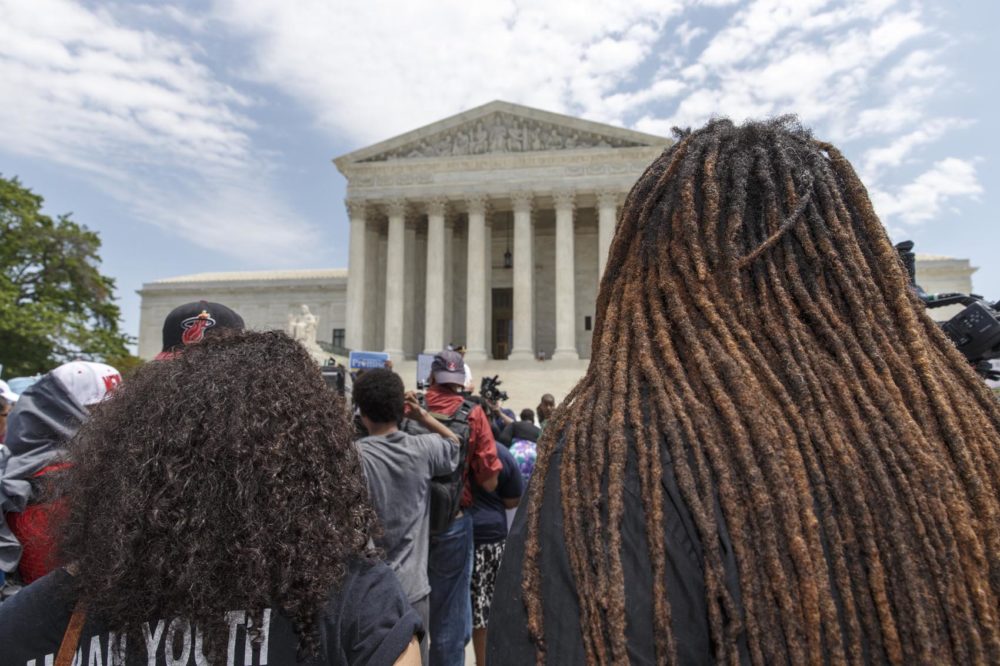Featured
Senators Open The Door To Segregation With Amy Coney Barrett Supreme Court Confirmation

One candidate for the White House has pledged to “reunite America.” The other has a record of dividing us, calling on hate groups to “stand down and stand by.”
Some might be surprised at how far back President Donald Trump’s newest justice on the Supreme Court will turn the clock.
Remember this nightmare scenario: a conductor on a train from New Orleans to Covington, Louisiana asks a man to move from a whites-only car to one for colored races. When he refused, he was arrested and jailed. That is what happened to Homer Plessy, a “mixed-race” man who was the plaintiff in the historic case of Plessy v. Ferguson, declaring racial segregation constitutional in 1896.
This legal doctrine became known as separate, but equal. It was the law for 48 years until Brown v. Board of Education, a 1954 Supreme Court case overturning the Plessy decision and making racial segregation illegal. The Brown case laid the foundation for the civil rights movement, a decade later.
The recently rushed nomination process for a lifetime appointment to our nation’s highest Court is a setback. After months of diverse voices shouting, Black lives matter” on our streets, it was disappointing for the Republican Senate majority vote for Judge Amy Coney Barrett to become the 115th justice on the Supreme Court. The confirmation process was a disappointing return to the thinking of the 1890s when separate facilities for African Americans were promoted as equal and most Senators would not even question it.
In 2017, Judge Barrett endorsed a decision allowing an employment practice described as a “separate-but-equal” arrangement. During the confirmation hearing, Barrett dismissed the results, saying she did not “rule on the merits.” Sounds reasonable until the facts are presented.
Kevin Stuckey, a Black man, worked at AutoZone in Chicago. Based on Stuckey’s race, the company transferred him from a store in a Hispanic neighborhood to one in an African American community.
The Equal Employment Opportunity Commission (EEOC) called this practice a violation of civil rights law, prohibiting employment discrimination. The Chief Justice of the Seventh Circuit labelled the case “a straightforward question under Title VII of the Civil Rights Act of 1964: Does a business’s policy of segregating employees and intentionally assigning members of different races to different stores ‘tend to deprive any individual of employment opportunities’ on the basis of race?”
Here is a hint: the answer is yes, a policy “deliberately maintaining racially segregated workplaces” denies employees opportunities. Yet, most judges on the Seventh Circuit disagreed.
Barrett’s involvement in EEOC v. AutoZone is small, but significant.
A three-judge panel decided against Kevin Stuckey and the EEOC. Barrett in her role as a judge on the Seventh Circuit sided with the majority in rejecting a hearing of all the active judges, allowing the AutoZone practices of segregating workplaces to stand.
Senators failed to stop a new justice who may breathe life into segregation.
Holli Holliday, a practicing attorney, is president of Sisters Lead Sisters Vote, a nonprofit by, for and about black women.

-

 Featured10 months ago
Featured10 months agoCalifornia Is the First State to Create A Public Alert for Missing Black Youth
-

 Featured9 months ago
Featured9 months agoAfrican American Leaders Stay the Course Amid Calls for President Biden To Bow Out of Race
-

 Featured10 months ago
Featured10 months agoThe Debate Fallout Lands on Both Candidates
-

 Featured9 months ago
Featured9 months agoPresident Joe Biden Decides to Withdraw from the Presidential Race
-

 Featured9 months ago
Featured9 months agoIn One of His Final Speeches as President, Biden Says It’s Time for ‘Fresh Voices’
-

 Featured9 months ago
Featured9 months agoPresident Joe Biden Describes Shooting of Donald Trump As ‘Sick’









